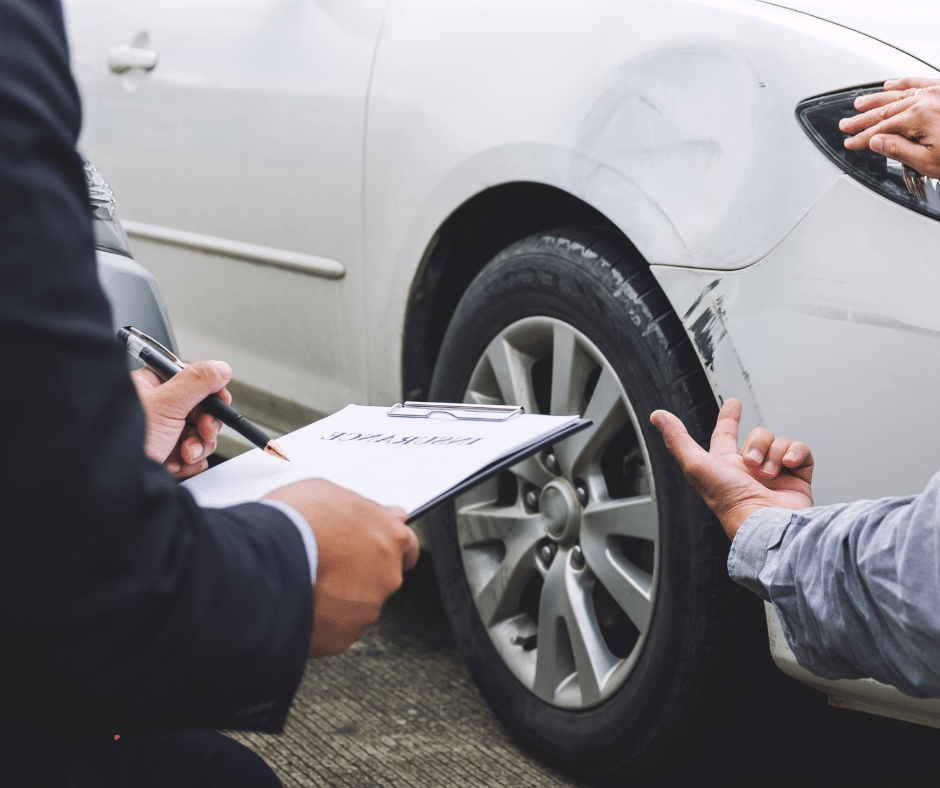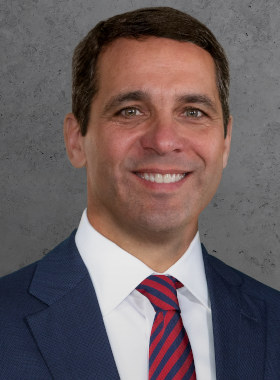
In an automobile accident, you’ll usually turn to your insurance provider to cover your medical bills, lost wages, property damage, and other losses. This is because Michigan is one of 12 states with no-fault insurance laws. While this arrangement may seem more convenient, getting benefits from your insurance policy can be just as challenging.
Auto-Owners Insurance is a well-known auto insurance company in Michigan, but if you’ve never filed a claim before, you may not know what to expect or even how to begin. In this article, we’ll outline how to report your accident, deal with insurance representatives, and avoid delays that could affect your recovery.
Who is Auto-Owners Insurance?
Auto-Owners Insurance is a mutual insurance company based in Lansing, Michigan. Founded in 1916, it operates in 26 states and offers property and casualty coverage through independent agents. The company offers the required no-fault coverages and optional benefits for Michigan drivers. While some policyholders report smooth claims experiences, results can vary; if you’re seeking a higher settlement for injuries, you may encounter pushback from adjusters trying to protect the company’s bottom line.
What to Do After Your Car Accident
The first few minutes after a car crash can be disorienting. You’re likely shaken, sore, mad, and worried about your well-being and that of any passengers. Even if you’re sure you only suffered vehicle damage, you’re still going to feel shaken. Here, we provide you an overview that covers various types of insurance claims arising out of a car crash, as well as direction on what you can do to support your claims.
- Report the Crash: Once you’ve seen a doctor, make sure the crash is reported to the police. Michigan law requires a crash report if anyone is injured or if there’s $1,000 or more in property damage. The police report will help verify the details of the accident when you file your claim.
- Gather Information at the Scene: After calling 911 and maybe a family member or friend, try to collect basic information while you’re still at the accident scene. Exchange contact and insurance details with the other driver, and make sure to write down their license plate and driver’s license number. Be civil, but don’t discuss fault – leave that to the insurance company and your car accident attorney. Next, take photos of any vehicle damage, the road conditions, and traffic signs. If anyone witnessed the crash, ask for their names and contact information.
- Get Medical Attention: Your health is the top priority after a motor vehicle accident. Even if your injuries feel minor, it’s important to get checked by a medical professional as soon as possible. Some symptoms take time to show, and any delays in treatment could raise questions later.
- Notify Auto-Owners About the Accident: Once you’ve left the scene and addressed any medical needs, it’s time to notify Auto-Owners. Starting your auto insurance claim promptly helps prevent unnecessary delays and keeps your recovery on track. You can report the claim online, by phone, or through your local agent. Be ready to provide the date, time, location of the crash, and a brief explanation of what happened.
Your Auto-Owners policy will likely include personal injury protection, or PIP, which pays for medical expenses, lost wages, and limited household services. These benefits apply regardless of who caused the crash. If you also carry collision or comprehensive coverage, your vehicle repairs or replacement may be included. Reviewing your policy documents will help you understand what the insurer is likely to approve. But if you’re unsure about a benefit, ask your insurance agent, the adjuster assigned to the file, or a car accident lawyer to explain your auto insurance policy in detail, including what types of coverage apply to your situation.
It is important to note that changes to Michigan’s no-fault law in 2019 allows Michiganders to buy various levels of PIP medical coverage with their auto policy, or to opt-out under certain circumstances.
After you report the crash, Auto-Owners will assign an insurance adjuster to your case. This person will evaluate your records, ask for supporting documents, and decide what the insurer will pay. Provide any requested materials quickly and keep copies for yourself.
Although adjusters help move the claim along, remember that they work for the auto insurance company and represent its interests, not yours. Their goal is to control costs, so be careful when sharing information. Be polite and clear, but avoid guessing or speculating. If you’re not sure about signing something, check with a lawyer first.
Filing for Property Damage
If your car was damaged in the collision, your policy may include coverage for vehicle damage repairs or a full loss payout. Usually, you’ll need to pay your deductible before the insurer pays the balance.
The insurance adjuster may inspect the car or ask you to visit a repair shop for an estimate. You’re free to choose your own repair shop even if Auto-Owners suggests one. Just make sure the shop provides detailed documentation to support your claim, including an itemized invoice that breaks down parts and labor costs. You should also save every receipt tied to your car repairs, towing, and rental needs.
If your car is a total loss, your accident settlement should reflect its fair market value or the actual cost to replace the vehicle. If you’ve made upgrades or kept the vehicle in top condition, submit appropriate documents. If Auto-Owners collects from the other driver’s insurer later, you might get reimbursed for part of your deductible, and detailed records make it easier to prove your costs.
Know Your Rights Under Michigan’s No-Fault Law
Under Michigan’s no-fault system, your own insurer must pay for medical bills, wage loss, and certain replacement services regardless of fault. These first-party benefits come from the personal injury protection (PIP) portion of your policy. Covered medical expenses can include doctor visits, hospital stays, rehabilitation, and prescription medications tied to the crash.
You may also be allowed to pursue a third-party claim against the at-fault driver provided your injuries meet the legal threshold under Michigan law – meaning you’ve suffered a serious impairment of a body function, permanent serious disfigurement, or death. To learn whether your injuries qualify to bring a claim against the at-fault driver call a car accident lawyer! Do not assume your injuries do or don’t qualify. Talk to a lawyer who handles these claims every day to understand your full rights.
Deadline for Filing an Auto-Owners Insurance Claim
Strict time limits apply to Michigan auto claims. You must file for PIP benefits within one year of the crash – any longer and you may be denied. Third-party claims for injuries must be filed within three years. Minors and others with limited capacity may qualify for extensions, but these are exceptions that your car accident lawyer can explain in more detail.
Dealing with Medical Exams and Requests
Auto-Owners may ask you to attend a medical exam with a doctor they select. These insurance medical exams, or IMEs, are often used to review your injuries and determine if further benefits should be paid. The exam can affect how your insurer handles your claim moving forward. Unfortunately, insurance companies most often use these exams to reduce or end the benefits you are entitled to under the policy and law.
If you have a car accident lawyer, make sure they know you’ve been scheduled for an IME and follow their instructions. During the exam, explain how the injuries affect your job, daily tasks, and ability to move. Stay honest, and don’t overstate or underplay what you’re going through. If the exam leads to a report that downplays your condition, contact a car accident attorney right away. In many cases, having legal representation improves how your claim is handled from the start.
Watch for Common Insurance Claim Denials
Insurance companies may deny your claim even if you think you’ve done everything right, creating added stress when you’re already dealing with injuries and financial loss. Below are some of the most common reasons for a denial:
- Missing Documentation: If you don’t submit thorough information and records (i.e. medical records, bills, or accident reports) your claim may be denied. Keep everything organized and send copies to your insurance adjuster right away so there’s no delay in reviewing your claim. Return your adjuster’s calls and emails timely and with accurate and complete information.
- Delayed Reporting: Waiting too long to file your claim or get medical treatment can make it look like the injuries weren’t serious or caused by the crash. Prompt action helps show that your condition is related to the accident.
- Disputed Liability: If there’s confusion about who caused the accident, Auto-Owners may delay or reject parts of your claim. Statements from witnesses, photos, and the police report can help show that the other party was the at-fault driver.
- Policy Exclusions: Some claims are denied because they fall outside of what your policy covers. Understanding your coverage and asking questions early can prevent surprises during the review.
- Failure to Attend an IME: If you skip an insurance medical exam, they will likely suspend benefits until it’s completed. Attending the exam and staying consistent with your treatment helps keep your benefits active.
If your claim is denied, request a written explanation. You may have legal options depending on the reason for the denial.
How a Personal Injury Attorney Can Help
Insurance companies rarely, if ever, make a fair settlement offer the first time around. Even if you’ve submitted everything they asked for, you might still encounter delays or low offers. When that happens, a personal injury attorney can step in to protect your interests.
- Communicating With the Insurer: A Michigan car accident lawyer can speak directly to Auto-Owners on your behalf and handle all correspondence. This keeps the claim moving and helps avoid miscommunication that can cause delays.
- Reviewing and Organizing Documents: Your attorney will help collect and submit medical records, bills, and accident reports. They’ll ensure nothing is missing, so that your insurance claim is as thorough as possible.
- Negotiating Settlements: If the insurance offer is too low, your lawyer can push for a better result. They know which documents support your case and how to present your losses.
- Filing a Lawsuit if Needed: If negotiations break down, an experienced attorney can prepare an auto accident lawsuit and represent you in court. This adds pressure on the insurer to resolve the claim fairly.
- Providing Legal Guidance: Your attorney will clearly explain your options and what to expect throughout the claim. They’ll also answer your questions and advocate for you when the insurer tries to minimize or deny your compensation.
Conybeare Law Office Can Help You Take the Next Step
Filing an Auto-Owners Insurance claim means dealing with interviews, document requests, and insurer-driven exams. A car accident attorney can guide you through all of these requirements and act quickly if the insurer pushes back. An experienced auto accident lawyer can also help evaluate your claim and explain your legal options.
At Conybeare Law Office, for over 40 years, we’ve worked with clients throughout Southwest Michigan to resolve accident claims. Our team knows how an auto insurance company like Auto-Owners handles these cases and will fight to make sure you’re heard. We offer free consultations, and there’s no fee unless we recover money for you. That way, you can get answers without increasing your financial risk. For more information or to speak with an auto accident lawyer, call (269) 983-0561.
Related: Michigan No-Fault Lawyers

Barry Conybeare focuses on all aspects of personal injury law, including car accidents, medical malpractice, product liability, insurance claims, and most other injury cases.
- Best Lawyers in America®, Lawyer of the Year 2024, 2021, 2017, and 2013, Plaintiffs Personal Injury Litigation, Kalamazoo Region (Southwest Michigan)
- Best Lawyers in America® 2008-2024, Plaintiffs Personal Injury Litigation, Kalamazoo Region (Southwest Michigan)
- Michigan Super Lawyers® 2009-2023
